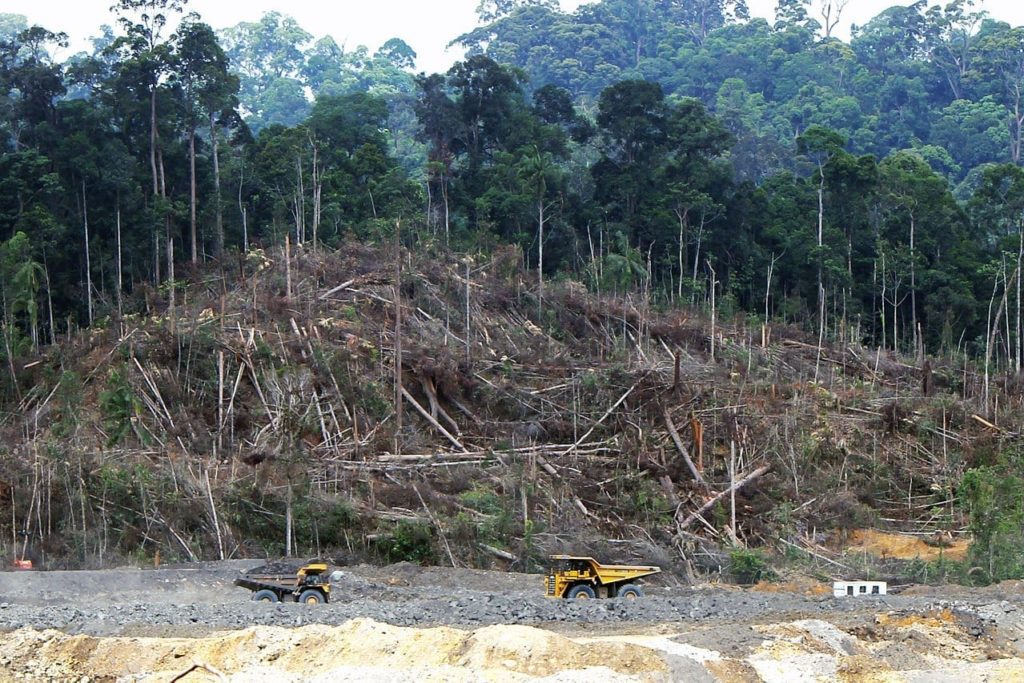It’s Time to End Imported Deforestation
In 2019 Delara Burkhardt became an MEP for the Social Democratic party of Germany, making her the youngest German MEP. She is currently a member of the European Parliament’s committee on the environment, specifically working on introducing European rules for deforestation-free supply chains. REVOLVE connected with Delara to talk about her work and the potential impact it will have for the EU and the world.
Why is the term ‘imported deforestation’ so important for people to understand?
Within the EU we have achieved a turnaround – the forested areas on our continent are growing again. But the global picture is different. Last year was a wake-up call. We all still have images of the burning Amazon in our minds. But this is not just a Brazilian issue, in the EU too we share responsibility for the destruction of the rainforests. Our consumption in Europe is responsible for about 10% of the world’s forest destruction.
Soy cultivation and meat production alone are responsible for 80% of global deforestation. About one fifth of soy and meat imports from Brazil to Europe are linked to illegal deforestation, as scientists pointed out in the scientific journal Science this summer.
Or take leather as an example – research by the NGO Earthsight revealed that a well-known German car manufacturer purchases leather for its luxury cars from Paraguayan tanneries linked to illegal deforestation in Paraguay via its Italian supplier.
Thus, rainforests around the world are destroyed for the things that end up on our plates – or even in our cars. That is how we import deforestation.
What does the new vote imply for the European consumer?
So far the vote in the Parliament does not have any effects on consumers. However, it shows that the majority of MEPs is in favour of establishing a legal framework, which would hold companies accountable for deforestation they might cause abroad or in Europe. In order to establish such a legal framework, the Commission now has to come up with its own proposal, which, hopefully, will follow the Parliament’s suggestion.
The problem is that when we drink coffee in Europe, or eat chocolate, we cannot be sure that rainforests have not been destroyed to make way for agricultural land.
If this should be the case and if in a later step the Member States would also follow, it could mean that consumers would not have to fear any more that their consumption might cause deforestation. Currently, we have a lot of voluntary measures and labels, but nothing guarantees certain standards in all elements of the supply chain and can be rather misleading than helpful. This has to end and this is why citizens and businesses have demanded for such a framework and are supporting the initiative.
The problem is that when we drink coffee in Europe, or eat chocolate, we cannot be sure that rainforests have not been destroyed to make way for agricultural land for the coffee, cocoa or palm oil in it – or for the leather of the car seats we sit on. Because so far there are no rules in the EU on this. This is what I want to change with my proposal.
Simply sticking a label on a product to signal they are deforestation-free, will not solve the problem. The European Parliament is sceptical of this instrument, as it puts the burden to decide on the consumer. When filling up their fridges, consumers should not have to choose whether they want to contribute to deforestation. What is needed are mandatory rules for due diligence by companies putting commodities on the European market that are potentially risky for forests. They should check and make sure that their products do not come from land that was forestland or another valuable ecosystem before. Deforestation-free products must become the norm in the EU. It’s not a “nice-to-have” for marketing purposes, it’s a must-have for the survival of the planet.

How will the legislation affect international trade for timber or wood-products?
The European Parliament resolution calls on the European Commission to assess the feasibility of including timber and wood-products in the scope of this proposal for new legislation. The main change to the current rules of the EU Timber Regulation, that so far regulates the placing of timber on the EU market, would be that companies should not only guarantee that the timber and wood-products were sourced legally in the country of origin. They would also have to check and make sure that the timber and wood-products are not derived from rainforests or old-growth forests. In some countries this is partly not illegal. But this is not sustainable. I believe such products should not end up on the EU market.
Will there be compensatory measures to balance the collateral economy effects?
There are no concrete compensatory measures considered. However, the European Parliament stresses how important it would be to accompany a supply chain law for forest and ecosystem-risk commodities by development cooperation and trade-based instruments, like the existing Voluntary Partnership Agreements for timber and wood-products. Ideally, with such a cooperation the underlying causes of deforestation and human rights violations on the ground in producer countries should be addressed, particularly core governance issues: improve laws affecting forests and land rights in the agricultural sector, corruption and impunity, and the capacity of national authorities in producer countries to tackle deforestation.